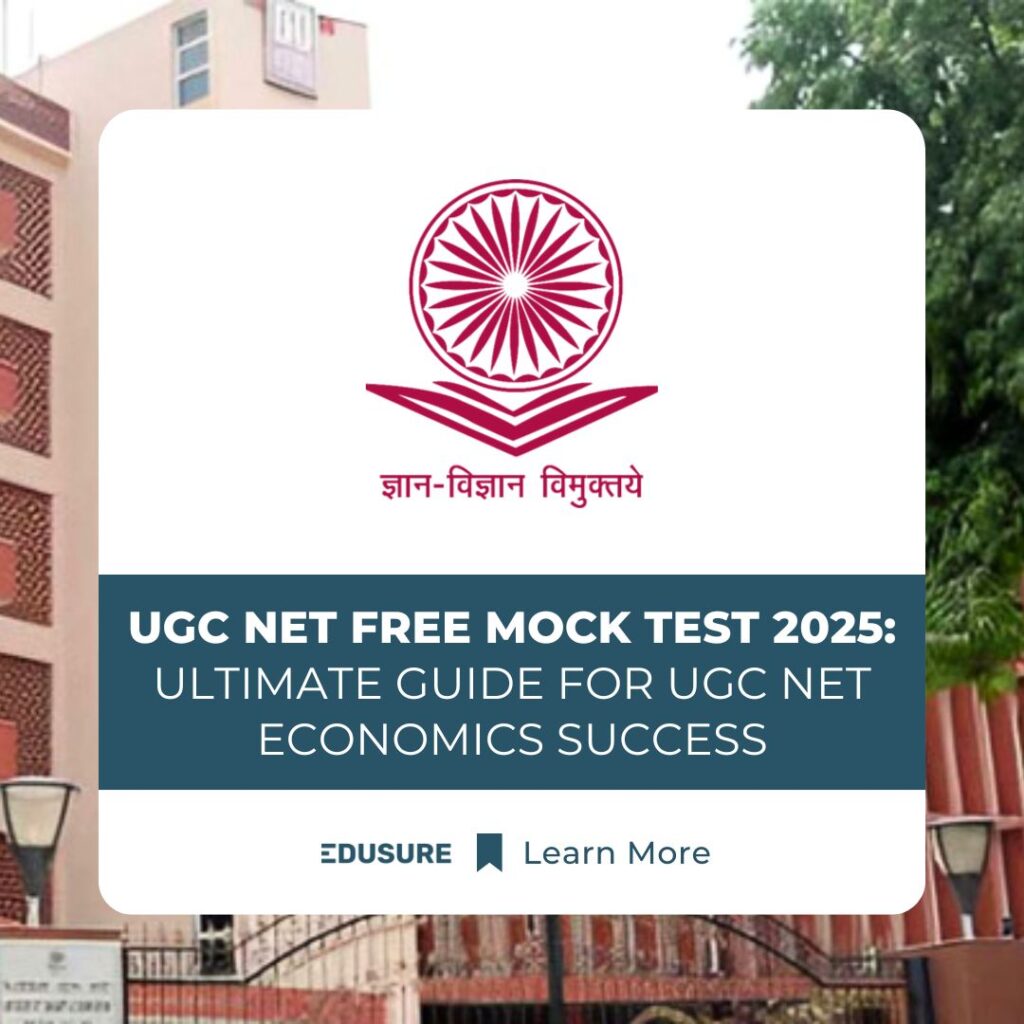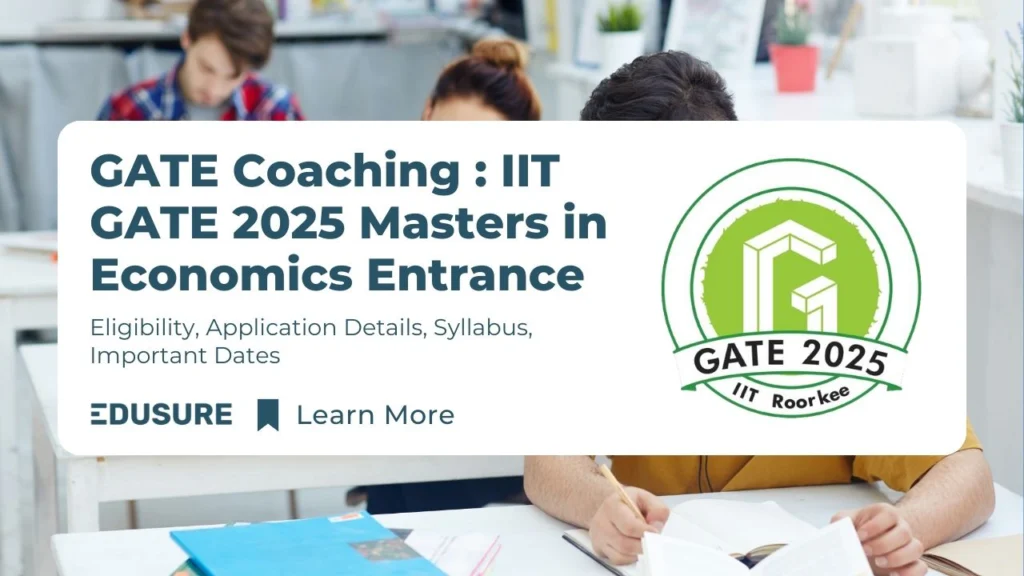

EduSure is India’s top GATE coaching Institute, register with us for a FREE trial class now for the upcoming IIT GATE 2025 Entrance Exam for your Masters in Economics.
The GATE 2025 Economics exam which will be organised by IIT Roorkee is a prestigious and difficult entrance exam for graduates looking to pursue doctoral courses in Economics or land high-profile employment in academia, research, and industry. We shall be sharing all the information – important dates, syllabus and other things about the exam in this post.
Candidates who are currently studying in the 3rd or higher years of any undergraduate degree program or who have completed any government approved degree program in Engineering/ Technology/ Architecture/ Science/ Commerce/ Arts/ Humanities are eligible to appear for GATE 2025.
Looking for IIT GATE coaching for Masters in Economics Entrances? You are in the RIGHT place! Click here and reach out to us now.
The exams are to be held on 1st February, 2025, 2nd February 2025, 15th February, 2025 and 16th February, 2025 (dates are liable to change).
Don’t miss out on becoming the RANK 1! Get the right IIT GATE coaching for your preparation. Click here and take your first step.
For more details, please visit the official GATE 2025 website: https://gate2025.iitr.ac.in/
Get IMMEDIATE access to all the study materials with EduSure’s excellent IIT GATE coaching from anywhere anytime! Click here to register now.
Suggested for you
EduSure has one of the best and the most structured programmes to crack the Masters in Economics Entrance Exams. It’s a 12-year-old Institute with students having Rank 1 in DSE, JNU, IGIDR, and IIT amongst other exams consistently in the last few years.
To see student testimonials of EduSure and hear about their success : www.youtube.com/edusureschool
To speak to an EduSure student counsellor, please fill out this Enquiry Form or call on 8100824600/01
For course enrolment, drop in your details on https://edusure.in/contact/ and we shall get back to you!
Ask a Question: edusureschool@gmail.com
Subscribe: https://www.youtube.com/c/EduSureSchool
Instagram: https://www.instagram.com/edusureschool/
Quora: https://www.quora.com/profile/EduSure-School
Facebook: https://www.facebook.com/Edusure?mibextid=ZbWKwL
We hope this was helpful.
Happy Learning!!

EduSure School is a 14+ year institute, with ISI/DSE faculty, Solely focused on MA Economics Entrance Exams.
WhatsApp us